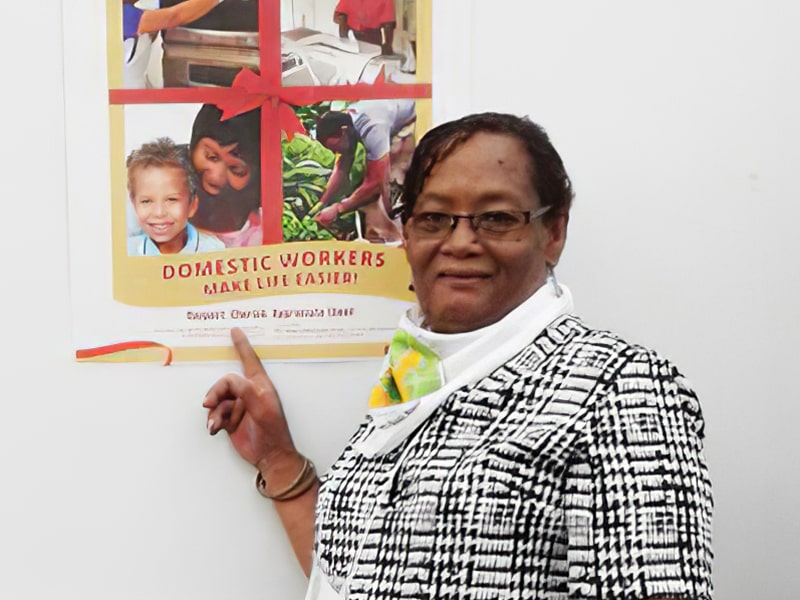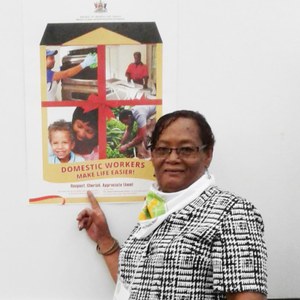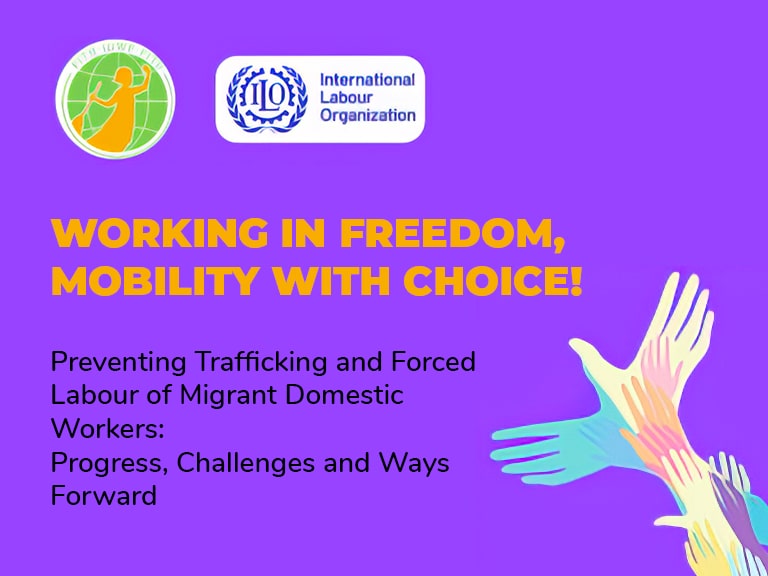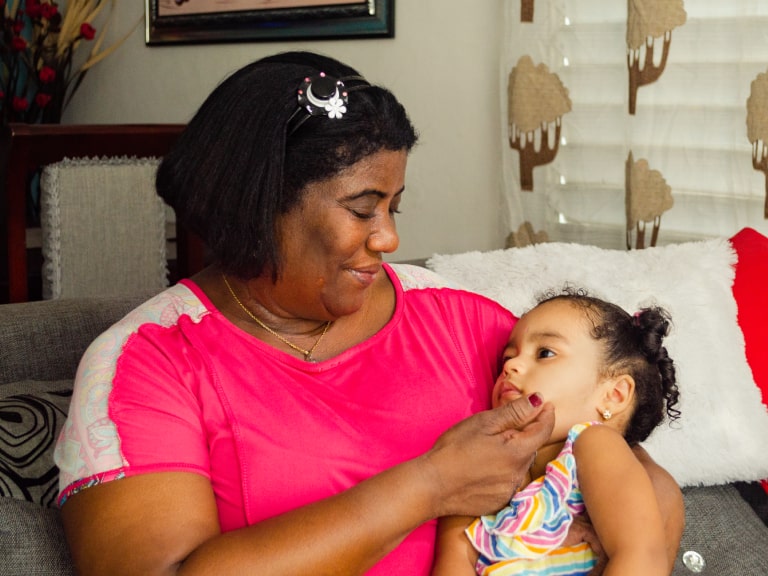- This event has passed.
The pandemic will not stop the fight of domestic workers in Trinidad and Tobago
The insights of Ida Le-Blanc, General Secretary of National Union of Domestic Employees (NUDE), in Trinidad and Tobago.
Details
The insights of Ida Le-Blanc, General Secretary of National Union of Domestic Employees (NUDE), in Trinidad in Tobago[1].
Many countries in the Caribbean, such as Anguilla, the Cayman Islands, the Bahamas, Barbados, the Dominican Republic, Grenada Barbados, Guyana, Jamaica, and Saint Lucia share the common historical experience as British colonies exporting primary agricultural products using enslaved and indentured labor. Since then, some countries have transitioned into exporting raw materials or relying on the tourism sector. They are also highly indebted economies, with Jamaica incurring the highest national debt of 125 percent of GDP. Jamaica’s estimate of economic informality is also high; reaching 35% in the early 2000’s (Vuletin, 2008).
For historical reasons, their legal traditions and labor relations, when it comes to the labor law. despite lifting the economy for decades if not centuries, gross national product and national income do not account for the value of domestic labor. Post-colonial societies continue to place more value in labor that requires education, understood as highly skilled, at the expense of manual and other labor that does not require a formal education. The informal employment sector thus comprises many impoverished populations that have emerged from under enslavement and bonded labor. They find employment in the services sector. However, with tourism becoming less possible in the Caribbean due to the outbreak of the pandemic, people resort to seeking employment within households, which possibility, in turn, is decreasing, leaving many domestic workers fighting for their livelihoods and experiencing new levels of poverty.
In Trinidad and Tobago, the Industrial Relations Act of 1972 does not recognize household workers as workers. With the start of the lockdown in the months of April and May, the Prime Minister announced that Domestic Workers should not go to work, with the exception of those who are in a live-in situation: they were forced to remain with their employers, and did not get paid for the overtime and additional tasks on their plates brought about by the pandemic, such as caring for children who were not attending schools and preparing the meals they would usually get through the school alimentation programs.
The live-in workers are largely migrants, as local domestic workers commute to work and reside within their own households. They could return to work on June 8, 2020, only to find out that replacement was found to them, as their employers opted for a live-in migrant domestic worker to maximize their social isolation. Local domestic workers reported their inability to commute for work, to pay their rent, and some were even evicted from their households. While the government has set aside some money for relief of those who were hit by bad weather for repairing their houses and additional resources for humanitarian aid, the workers report that those resources have been used as part of the electoral campaign and distributed exclusively to party members and supporters. Most domestic workers are not affiliated with political parties and were not able to access any governmental assistance, despite filling out forms and applying for social services including salary relief grants, food-parcels, child support, and cash for rent. The promises of the government to address the situation did not materialize.
The death toll caused by COVID-19 has reached 121 people, when the population is only about 1.5 million. The government is installing stricter measures. It had forbidden congregations for more than five people now raised to ten) at once, and closed bars and restaurants except for take-out services. It is compulsory to wear masks. The National Unions of Domestic Employees (NUDE) in Trinidad and Tobago was not able to access resources as the Ministry of Labor and the Industrial Court were closed. In times of crisis, it is important for the membership to feel supported and included, however, NUDE is only able to hold online meetings, in addition to the in-kind support it was giving the workers in groups of 2 or 3 to survive the pandemic.
NUDE has also pursued legal reparations for workers who were dismissed from their jobs, however, only those who are subcontracted by companies. The union has resorted to the media and shaming individual employers to access some of the withheld salaries and fight for domestic workers’ rights. However, it is becoming increasingly difficult to speak up, as the government attempts to uphold a good image within the public and international discourse, causing the silencing of domestic workers that “tarnishes” its image.
The situation exacerbated the tensions existing within domestic workers’ populations of different nationalities: it was easier to hire migrant workers as fewer mechanisms of litigation are available for them. It is also customary to have Venezuelan domestic workers in gated communities because of colorism standards that consider the employment of fairer-skinned individuals to be a marker of high class: “When an employer is able to hire a Venezuelan, it is prestige for them because they have fairer skin than other Black Venezuelan and local workers.”
As there is a crisis in Venezuela, migrant domestic workers continue to seek employment abroad and might face oppression if they are to return to their home-country. Venezuelan domestic workers face oppression in their country of deployment as well, as their employers threaten them with dismissal in case of resistance. While the language barrier remains a struggle between Spanish speaking Venezuelan and English speaking local domestic workers, NUDE’s leadership has assisted all domestic workers horizontally with immediate relief. Furthermore, the union is trying to lobby collectively to achieve a public good for all domestic workers. “We have to bring them together and not see each other as enemies but as an opportunity to fight together against the employer,” said Ida LeBlanc, president of NUDE.
Ida is currently looking to retire and conducting concession training for the union to persist and grow stronger and bigger. NUDE, created in 1974, relentlessly fights against the discrimination faced by domestic workers but also for its own survival: “The union will not die when we do.”
[1] Prepared by Roula Seghaier, IDWF Strategic Program Coordinator.









